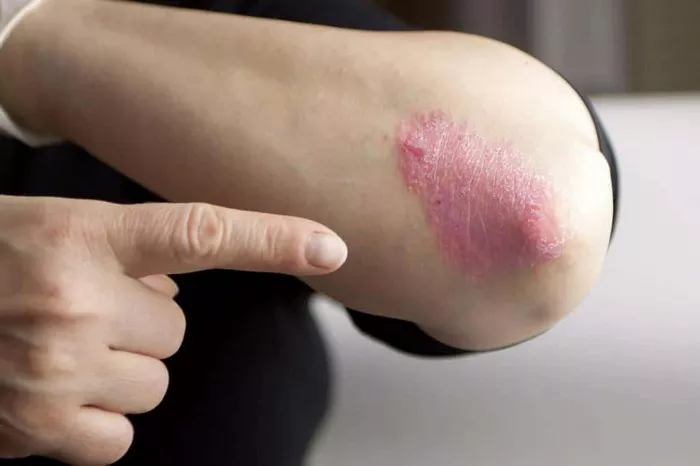Psoriasis vulgaris, commonly referred to simply as psoriasis, is a chronic, non-infectious skin condition that affects millions of people worldwide. It is characterized by the appearance of red, scaly patches on the skin, which can be itchy and sometimes painful. Despite its distinct and often severe symptoms, there is a significant amount of misinformation and misunderstanding surrounding psoriasis, particularly regarding its contagiousness. This article aims to provide a comprehensive overview of psoriasis vulgaris, focusing on the question of whether it is contagious, and exploring the underlying causes, symptoms, and treatments of the condition.
Understanding Psoriasis Vulgaris
Psoriasis vulgaris is the most common form of psoriasis, accounting for about 80-90% of all psoriasis cases. It is a chronic autoimmune condition, meaning that it occurs when the body’s immune system mistakenly attacks its own tissues. In the case of psoriasis, the immune system targets the skin, leading to rapid skin cell production and the formation of thick, scaly plaques.
Symptoms of Psoriasis Vulgaris
The primary symptom of psoriasis vulgaris is the development of red, inflamed patches of skin covered with silvery scales. These plaques can appear anywhere on the body but are most commonly found on the elbows, knees, scalp, and lower back. Other symptoms can include:
- Itching and burning sensations in the affected areas
- Dry, cracked skin that may bleed
- Thickened or pitted nails
- Stiff and swollen joints, which can indicate psoriatic arthritis, a related condition
The severity of symptoms can vary widely from person to person. Some individuals may have only minor patches, while others can experience extensive skin involvement that significantly impacts their quality of life.
Is Psoriasis Vulgaris Contagious?
The Contagion Myth
One of the most persistent myths about psoriasis vulgaris is that it is contagious. This misconception likely arises from the visible and sometimes severe nature of the condition. The red, scaly patches can look alarming, leading people to fear that close contact with someone who has psoriasis could cause them to develop it as well. However, this belief is entirely unfounded.
Scientific Evidence
Psoriasis vulgaris is not caused by a virus, bacteria, or any other infectious agent that can be transmitted from person to person. Instead, it is an autoimmune disorder, meaning it results from a malfunction of the body’s immune system. Researchers have found that psoriasis involves a combination of genetic and environmental factors, but none of these factors include contagious pathogens.
Multiple studies have confirmed that psoriasis cannot be spread through skin-to-skin contact, sharing personal items, or through respiratory droplets. The National Psoriasis Foundation and numerous dermatological associations worldwide emphasize that psoriasis is not contagious and pose no risk of transmission.
Genetic and Environmental Factors
While psoriasis is not contagious, it does have a strong genetic component. People with a family history of psoriasis are more likely to develop the condition themselves. Studies have identified several genes associated with psoriasis, including those involved in the immune system and skin cell growth. However, having these genetic predispositions does not guarantee that an individual will develop psoriasis; environmental factors also play a crucial role.
Triggers such as stress, skin injuries, infections, and certain medications can precipitate or exacerbate psoriasis in individuals who are genetically predisposed. Lifestyle factors, including smoking and obesity, have also been linked to an increased risk of developing psoriasis.
The Impact of Misconceptions
Social Stigma
The misconception that psoriasis vulgaris is contagious can have severe social and psychological impacts on those living with the condition. Many people with psoriasis report feeling isolated, stigmatized, and discriminated against due to the visible nature of their symptoms and the misunderstanding of the condition by others. This stigma can lead to significant emotional distress, exacerbating the symptoms of psoriasis and contributing to a cycle of worsening health.
Barriers to Treatment
Misunderstandings about psoriasis can also create barriers to effective treatment. People with psoriasis may avoid seeking medical help due to embarrassment or fear of judgment. Additionally, the stigma associated with the condition can lead to delays in diagnosis and treatment, reducing the effectiveness of interventions and impacting overall health outcomes.
SEE ALSO: Does Psoriatic Arthritis Rash Itch?
Comprehensive Management of Psoriasis Vulgaris
Medical Treatments
While there is no cure for psoriasis vulgaris, various treatments can help manage symptoms and improve the quality of life for those affected. The choice of treatment depends on the severity of the condition, the areas of the body affected, and the individual patient’s response to therapy. Common treatments include:
1. Topical Treatments: These are often the first line of defense for mild to moderate psoriasis. Topical corticosteroids, vitamin D analogues, and coal tar preparations can reduce inflammation and slow skin cell production.
2. Phototherapy: Also known as light therapy, this treatment involves exposing the skin to ultraviolet light under medical supervision. Phototherapy can be effective for moderate to severe psoriasis, especially when topical treatments are insufficient.
3. Systemic Medications: For more severe cases, systemic medications that affect the entire body may be necessary. These can include oral medications like methotrexate and cyclosporine, as well as biologic drugs that target specific components of the immune system.
Lifestyle Modifications
In addition to medical treatments, lifestyle modifications can play a crucial role in managing psoriasis symptoms. These can include:
1. Stress Management: Since stress is a known trigger for psoriasis flare-ups, incorporating stress-reduction techniques such as meditation, yoga, and exercise can be beneficial.
2. Healthy Diet: A balanced diet rich in anti-inflammatory foods can help manage symptoms. Some studies suggest that reducing the intake of alcohol, sugar, and processed foods may improve psoriasis outcomes.
3. Skin Care: Gentle skin care practices, including regular moisturizing and avoiding harsh soaps, can prevent dryness and irritation, reducing the likelihood of flare-ups.
Psychological Support
Given the significant emotional and psychological impact of psoriasis, psychological support is an essential component of comprehensive care. Counseling, support groups, and cognitive-behavioral therapy (CBT) can help individuals cope with the emotional challenges of living with a chronic skin condition.
Advancements in Psoriasis Research
Immunological Insights
Recent advancements in immunology have provided deeper insights into the mechanisms underlying psoriasis. Researchers have identified specific immune cells and cytokines (proteins that regulate immune responses) that play critical roles in the development and progression of psoriasis. This knowledge has paved the way for the development of targeted biologic therapies that specifically inhibit these immune pathways, offering new hope for individuals with severe or treatment-resistant psoriasis.
Genetic Discoveries
Genetic research has also made significant strides in understanding psoriasis. Genome-wide association studies (GWAS) have identified numerous genetic loci associated with an increased risk of developing psoriasis. These findings are helping to unravel the complex genetic architecture of the disease and may eventually lead to personalized treatment approaches based on an individual’s genetic profile.
Future Directions
The future of psoriasis research looks promising, with ongoing studies exploring new therapeutic targets, potential vaccines, and novel drug delivery systems. Researchers are also investigating the role of the microbiome (the community of microorganisms living on the skin and in the gut) in psoriasis, which could lead to innovative treatments that modulate the microbiome to improve skin health.
Conclusion
Psoriasis vulgaris is a chronic autoimmune condition that significantly impacts the lives of millions of people worldwide. Despite its visible and often severe symptoms, psoriasis is not contagious. The misconception that psoriasis can be spread from person to person is entirely unfounded and contributes to the social stigma and emotional distress experienced by many individuals with the condition.
Understanding the non-contagious nature of psoriasis is crucial for reducing stigma and improving the quality of life for those affected. Through a combination of medical treatments, lifestyle modifications, and psychological support, individuals with psoriasis can manage their symptoms effectively and lead fulfilling lives. Ongoing research into the genetic and immunological aspects of psoriasis holds promise for future advancements in treatment, offering hope for better outcomes and potentially even a cure.
In conclusion, it is essential for the public to be educated about psoriasis vulgaris, dispelling myths and fostering a more supportive and empathetic environment for those living with this challenging condition.
Related Topics:
























